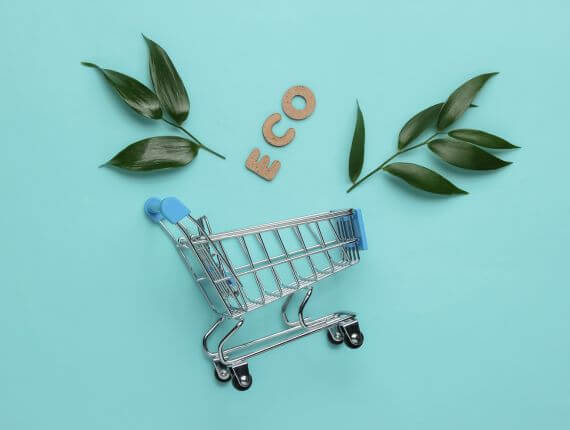Polish consumer and the sustainability – the latest edition of the “Responsible
e-commerce” report

According to the latest, fourth edition of Chamber of Digital Commerce report “Responsible e-commerce,” 64% of Polish consumers declare that sustainability issues are important to them when shopping online. They are increasingly willing to choose brands that act socially responsible and with concern for the environment. They increasingly pay attention to eco-friendly packaging and reach for local products. Following the principles of sustainable development can therefore not only benefit the environment and society, but also – by increasing sales and customer loyalty – retailers.
Although Polish consumer awareness of sustainability is growing – more and more people are paying attention to the consequences of their shopping choices for the environment – it still remains at a relatively low level. Awareness of terms such as “sustainability” and “ethics in e-commerce” still needs to be improved (it is worth noting that streaming platforms have become a significant source of knowledge about sustainability – they jumped to 3rd place, right after product packaging and the respondents’ workplace).
However, Polish e-commerce customers are becoming increasingly conscious in their choices of products and brands. They are driven not only by price and quality, but also by their impact on the environment and the local community. They pay more and more attention to the idea behind the brand and the product – 26% of them declare this, an increase of as much as 11% y/y! 25% (6% more y/y) pay attention to certifications and the integrity of business practices, and 24% (also up 6% y/y) pay attention to the brand’s involvement in socially positive actions and events.
Particularly important for Polish consumers is the aspect of eco-friendly packaging. As many as 63% of respondents pay attention to it (up 8% y/y), and 40% are ready to pay extra for it. Poles are also increasingly buying products in refillable packaging, the so-called refillers. 42% use them sometimes and on promotions or when it’s not a more expensive option, while 8% choose them whenever they have the option. One in four Polish consumers also like it when an e-retailer reuses packaging instead of using new packaging.
Trends in shopping behavior also show the growing importance of locality, with 41% of online shoppers opting out of buying products delivered from distant locations due to the negative environmental impact of transportation. While speed of delivery remains important, many customers are willing to wait longer if the order is delivered in a more sustainable manner, an attitude reported by 56% of respondents (down 4% y/y).
Unfortunately, awareness of the negative environmental impact of returning goods remains relatively low among Polish Internet users. Only 31% of respondents perceive this problem, which is quite a significant decrease compared to the previous year, when this percentage was 36%.
An increasing number of consumers (38%, up 14% y/y) expect e-stores to educate them about the safety of online shopping. This is related to the growing number of fraud attempts, especially via fake emails and SMS. One in four Internet users would be willing to report such violations to e-shops if they had the opportunity – but they believe that their reports are not taken seriously and the store will not take them into account.
Although we are seeing more and more conscious choices of products and brands, consumer involvement in social activities organized by brands is dropping dramatically – by 14% y/y (to 22%). And if it does occur, it is rather sporadic – continuous involvement is declared by 7% of respondents (although this is a 5% increase y/y). There is hope for improvement, however, as one in four intends to engage in such activities in the future.
Poland’s e-commerce market received a rating of 4.06 this year (down 0.13 y/y), placing it above the EU, non-EU and global averages, but there is still a perception among consumers that traditional commerce is more sustainable. This may be changing, however, as being guided by sustainability principles means benefits for companies. First, it helps build loyalty among customers, who appreciate companies’ genuine commitment to ESG activities. Transparent communication about initiatives taken builds trust and has a positive impact on brand image, which in turn translates into more sales. Second, it allows for long-term savings. Investing in sustainable packaging or supply chain optimization not only responds to customer expectations, but also reduces operating costs.
The latest edition of the “Responsible e-commerce” report is based on a survey conducted in September/October 2024 by the Mobile Institute on behalf of the Chamber of Electronic Commerce. Responses were collected from 1,794 Internet users and 555 representatives of e-commerce market companies.

